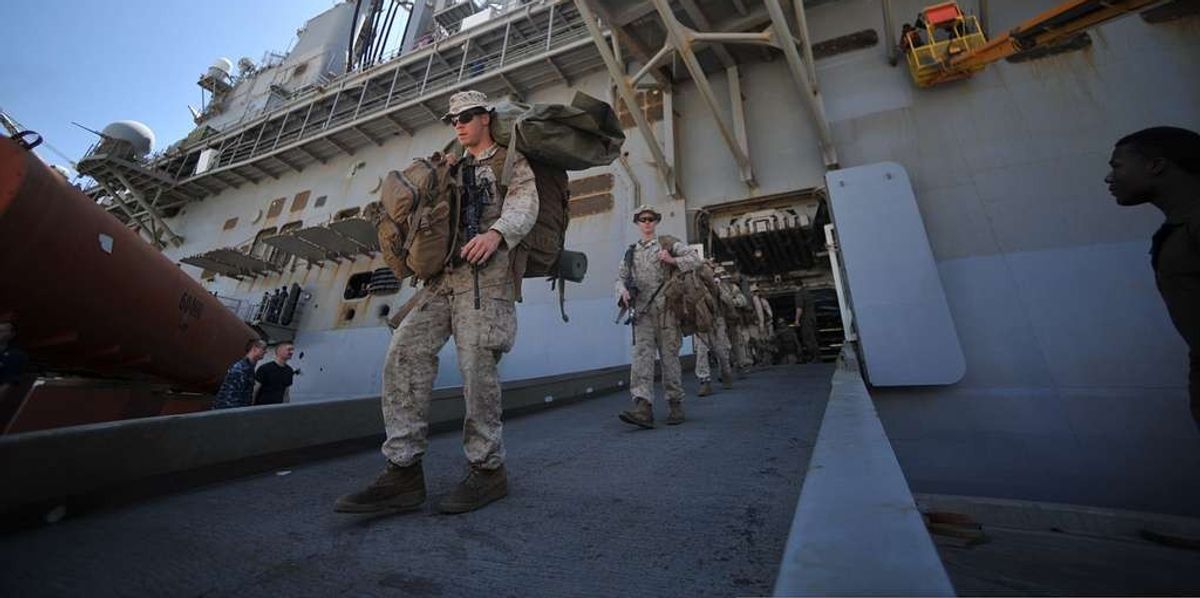Despite the White House parsing whether the U.S. is in a "war" or not, the Pentagon is mulling whether to extend the deployment of an existing Amphibious Ready Group now stationed in the Middle East, according to reports, as attacks by the Houthis and subsequent retaliations increase.
According to Military.com, the group includes the USS Bataan, USS Carter Hall, and USS Mesa Verde and has been "operating in the Middle East and the Mediterranean since the summer." ARG also includes aircraft and about 2,000 Marines as part of the 26th Marine Expeditionary Unit, according to the online magazine. As Naval warships with anti-missile batteries have been engaging directly with Houthis in the Red Sea, the USS Bataan has been "trawling the waters of the Red Sea, Strait of Hormuz and Mediterranean as a warning to disruptive actors in the area while being ready to help in an emergency."
The ARG was supposed to be replaced by the Boxer ARG, but reports indicate that the amphibious group is not "ready" (this has been fueled by speculation since the summer that the lead ship, the USS Boxer, was experiencing mechanical problems and had been docked for the last year).
An extended tour would mean the Marines on the USS Bataan would be in the region for upwards of a year before going home.
All told, the U.S military has about 30,000 service members currently deployed in the Middle East, which includes its permanent bases in Kuwait, Qatar, and Bahrain. The USS Ford carrier group returned to the U.S. this month on regular rotation, leaving the USS Eisenhower carrier strike group in the Red Sea with about 7,500 personnel.
The White House, despite nearly a dozen retaliatory attacks against the Houthis by the U.S. military over the last week, does not want to characterize the situation as "war," which has some in the press corps "perplexed," according to Miltiary.com.
"We don't seek war," said White House spokesperson Sabrina Singh last Thursday. "We are not at war with the Houthis."
"I don't know that there's any purpose served by being too cute about the way you talk about it," former Navy captain and RAND researcher Brad Martin told Military.com. "It's definitely combat, and it is definitely something that could become a much larger combat. ... Whether or not it is at the level that we would call a war is sort of an academic distinction."
The magazine noted that the Navy has awarded medals including a rare Combat Action Ribbon to sailors on the USS Carney, which was involved in shooting down Houthi strikes in October. At the time, it was reported that the Houthis were not attacking U.S. ships directly. From reporter Konstantin Toropin:
Navy officials have, so far, been unwilling to provide the citation behind the Combat Action Ribbon to Military.com, and they have yet to offer an explanation for why it cannot be made public.
When (Pentagon spokesman Maj. Gen. Pat Ryder) was asked whether the award signified that Navy ships are considered in combat while conducting seemingly defensive operations in the Red Sea, he replied that "the admiral's actions speak for themselves in terms of recognizing the crew ... so let's leave it at that."














